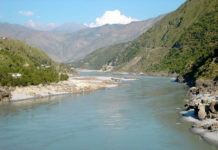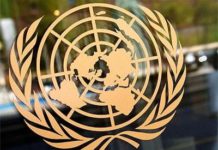Matters of heartland: On election 2024 and the Hindi heartland
Livelihood issues are competing with religious and caste identities in campaigning
The Hindi heartland, more often than not, decides who forms the government in Delhi. Of the 189 Lok Sabha seats in the six States of Bihar, Chhattisgarh, Madhya Pradesh, Rajasthan, U.P. and Uttarakhand that make up the very core of this territory, votes have been cast for 71 seats, in the first two phases. In Chhattisgarh, Madhya Pradesh and Rajasthan — where the BJP won the Assembly polls last year — the two principal national parties are in a direct contest which could determine who gets to lead the next government. For the BJP, the general election had begun on a high note with Prime Minister Narendra Modi setting the target of 400 seats for the party and its allies to win, even before the poll notification on March 16. The very next day, he even asked the Cabinet to draft the plan for the first 100 days of the next government which he is confident of forming. The Opposition on the other hand, began its campaign from a position of relative weakness and far less enthusiasm. The constituents of the INDIA bloc were still fighting among themselves on the seat-sharing formula. Developments since then have led to fresh questions. The Supreme Court-dictated disclosure of electoral bond data, and the arrest of Delhi Chief Minister Arvind Kejriwal by the ED, were two events that energised the Opposition’s low-key campaign and highlighted the issues of economic downslide, inflation and unemployment.
The BJP is trying to counter this with a far sharper cry on nationalism, and Hindu consolidation. It terms the Opposition as being ‘anti-Santana dharma”, and is targeting the Congress and labelling its manifesto as having an “imprint of the Muslim League”. An apparent fear among Hindu subaltern segments with regard to the ‘400-plus’ slogan has now put the BJP on the defensive. Statements by BJP leaders that a massive majority will enable it to rewrite the Constitution have been read as a threat by OBCs, Dalits and tribal communities. The BJP, with its ears to the ground, heard the fear, reflected in Prime Minister Narendra Modi’s speeches ahead of polling for the first phase, where he assured voters that the Constitution would not be tampered with. The BJP campaign is focused on explaining that there is no threat to caste reservations from it. And it accuses the Congress of planning reservations for Muslims. In the heartland where caste and communal identities are locked in a complex interplay, the BJP’s success is determined by religious mobilisation that overwhelms caste. The Congress’s promise of policies that advance economic and social justice are also at the centre of the campaign. While the Congress’s hope is to galvanise the poor and the subaltern castes, the BJP is trying to instigate fear of a socialist dictatorship. That it is addressing the poorest of the country with the fear of redistribution of wealth is a particularly striking paradox of the heartland.














